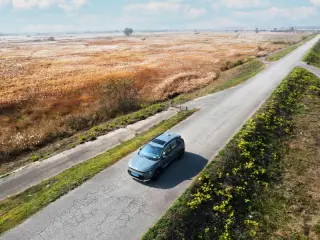
The journey from Land’s End to John O’Groats spans over eight hundred miles across the UK—making it one of the longest drives in the country. With many businesses now looking to switch to electric vehicles (EVs), the question remains: is this iconic route more cost-effective in a traditional diesel vehicle or a modern electric one?
In this updated analysis, we compare EV and diesel travel costs using 2021–2024 data, explore updated 2025 trends, and assess feasibility for fleets based on vehicle cost, charging, overnight stays, and productivity impacts.
How Far Is Land’s End to John O’Groats?
The direct route covers around 837 miles, though the exact distance varies depending on the vehicle, route, and charging stops.
Vehicle Comparison: Citroën ë-Relay (EV) vs Diesel
Vehicle Type Purchase Cost Estimated Trip Time Overnight Stops
Citroën ë-Relay EV ~£50,000 ~22 hours 2
Diesel Equivalent ~£21,000 ~16 hours 1
For many businesses, upfront costs remain a barrier. EVs like the ë-Relay are still significantly more expensive, despite offering long-term savings through lower running costs. Explore more on EV cost benefits
Charging Stops and Cost
An EV travelling this route would require approximately 8 rapid charging stops.
• Cost per charge (to 80%): £7–£10
• Total estimated charge cost: Up to £80
• Diesel fuel cost (based on average MPG): £130–£150
EVs remain cheaper to “fuel”, but accessibility and charging times are still challenges for time-sensitive fleet operations. Learn how to charge an EV effectively
Overnight Stays
EV Journey:
• Stop 1: Ibis Hotel, Preston – £60
• Stop 2: Coylumbridge Hotel, Aviemore – £59
• Total: £119
Diesel Journey:
• Stop: Days Inn, Gretna Green – £70
• Total: £70
Fleet drivers are legally required to rest after 4.5 hours of driving and can only drive for 9 hours daily. These limits, combined with EV range limitations, mean longer and more expensive trips.
Year-on-Year Cost Comparison
2021 Cost Overview
• Route tested with electric van
• Total cost: ~£200
• Time: ~21–22 hours
2022 (this blog’s original version)
• Highest performing piece
• Fuel cost difference was more significant (diesel was higher)
2023 EV Van Journey
• Article: /news/lands-end-john-ogroats-electric-van-1-year
• Lower EV charging cost, diesel plateauing
2024 Tests
Split by fuel card network:
• BP card journey
• Shell card journey
Each offered network-specific insights into charge point availability and time loss. EV journeys averaged 20–23 hours, often needing network-specific apps or RFID cards.
2025 Forecast
• Awaiting internal investigation results.
• Early trends suggest no significant improvement in range or recharge times, although rapid charge networks are improving.
Real-World Fleet Feedback
In a recent Right Fuelcard customer survey, the majority of fleet managers said they do not plan to switch to electric in the next 12 months. The primary barriers were:
• High purchase costs
• Limited charging infrastructure
• Journey delays due to range and downtime
Is EV Travel Worth It?
Cost Category EV Diesel
Vehicle Purchase High Lower
Fuel/Charging Lower Higher
Overnight Stays Higher Lower
Downtime Higher Lower
While EVs are cheaper to run, they introduce time and cost penalties when operating under pressure—especially for long-haul, multi-stop journeys. Discover our fleet fuel-saving tips
Supporting Sustainability
Although more expensive now, the 2030 petrol and diesel ban means switching is inevitable. Businesses that adapt early may benefit from green incentives, brand perception gains, and future-proofing their fleets. Learn about sustainable fleet practices
Test Case: The Great British EV Rally
Lex Autolease’s EV rally showed a successful 5-day drive from John O’Groats to Land’s End using EVs. However, unlike fleet drivers, they weren’t on tight schedules or fuel cost constraints—making this more of a proof of concept than a fleet-viable route.
Switching Smart: Your Next Step
To make the switch smoother, Right Fuelcard offers a dedicated EV charge card compatible with major public networks, plus diesel and petrol coverage. Explore our EV fuel card options or compare all available cards.
Apply online in minutes and start your electric journey with the right support.




